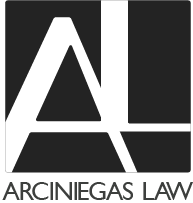“I cannot afford an attorney.”
Attorneys that practice in this area of the law will take these cases on a contingency basis meaning they will agree to represent you and fees will be recovered from a judgment award or settlement agreement.
“I fear retaliation from my employer.”
Filing a lawsuit in federal court is considered protected activity and the law provides recourse against an employer who retaliates against someone engaged in protected activity.
“I do not have any evidence.”
Evidence is information obtained from documents, electronically stored information, and testimony that can persuade a reasonable person to find something is more likely true than not.
Employers not employees have a legal obligation to maintain records. Next, involves the testimony of current and former employees as well as managers and owners. There are other sources of information that may lead to other evidence.
“All I have is hearsay”
Almost everyone has watched an episode of “Law and Order” and heard objections being raised claiming inadmissible because of hearsay. However, “hearsay” has many exceptions or considered non-hearsay, making it more like a piece of Swiss cheese than a steel door.
One exception is particularly important in the employment litigation context is under Federal Rule of Evidence 801(d)(2)(D), a statement is not hearsay and may be admitted against an opposing party if the statement “was made by the party’s agent or employee on a matter within the scope of that relationship and while it existed.” The Rule sets forth three elements necessary for admitting a statement that would otherwise be excluded as hearsay: (1) the statement must be made by an agent or employee of the party against whom the statement is being offered; (2) the statement must concern a matter within the scope of that employment relationship; and (3) the statement must be made while the declarant is yet employed by the party. There is no additional requirement that the declarant must still be in the same scope of employment at the moment the statement is made. The Rule’s language is unambiguous. The second element requires that the statement concern a matter that was at some time within the scope of the declarant’s employment. The third element requires only that the statement be made while the declarant is yet employed; it does not require that the declarant still be in the same position that resulted in the matter being within the scope of the employment relationship.
Meaning Plaintiffs and witnesses reporting statements they heard coming from the mouth of management may be admissible.
